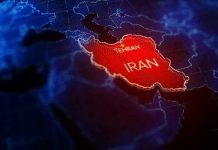
President Trump’s latest executive orders on crime policy have sparked a fierce debate, with critics labeling them as political maneuvers against public safety.
Story Highlights
- President Trump ends cashless bail and expands National Guard’s domestic role.
- Insha Rahman urges Democrats to reject Trump’s crime crackdown.
- Critics argue Trump’s actions are political power grabs.
- Social media buzzes over controversial statements at the DNC meeting.
Trump’s Executive Orders and Their Implications
On August 25, 2025, President Trump signed executive orders ending cashless bail nationwide and expanding the National Guard’s role in domestic law enforcement. These actions are positioned as a strong stance against rising crime rates, but they have sparked significant controversy. Critics claim these measures threaten public safety and constitutional rights by undermining reforms aimed at reducing systemic inequities in the criminal justice system.
Insha Rahman, a prominent figure in criminal justice reform, addressed the Democratic National Committee’s summer meeting, urging leaders to challenge Trump’s policies. Rahman, representing the Vera Institute of Justice, argued that the executive orders represent a political power grab rather than genuine crime-fighting strategies. Her remarks have ignited a heated debate, especially on social media platforms, regarding the true intent and impact of Trump’s actions.
The Political Landscape and Democratic Response
The Democratic Party faces a strategic conundrum as they navigate public safety concerns and reformist agendas. Rahman’s speech highlights internal divisions over how to address Republican narratives that paint Democrats as “soft on crime.” The DNC’s summer meeting serves as a crucial platform for shaping the party’s messaging ahead of the 2026 midterms, where crime is expected to be a pivotal issue.
Democrats are tasked with balancing their commitment to reform with the need to maintain public confidence in their ability to ensure safety. This balancing act is further complicated by Trump’s direct interventions, which some state and local leaders view as federal overreach.
The Broader Implications of Crime Policy
Trump’s executive orders could have far-reaching consequences for the U.S. criminal justice landscape. In the short term, these policies may increase political polarization and lead to legal challenges. In the long term, the rollback of cashless bail could affect low-income and minority communities disproportionately, potentially leading to higher incarceration rates.
Moreover, the use of the National Guard in crime control sets a precedent for expanded federal and military involvement in domestic affairs, raising concerns about government overreach and civil liberties. The economic impact includes increased costs for pretrial detention and potential profits for the bail bond industry, while socially, there is the risk of heightened community distrust in law enforcement practices.
Sources:
Fox News: Social media erupts after DNC speaker says migrant crime, carjackings ‘don’t matter’
KATV: Trump’s Executive Order Expands National Guard’s Role in Crime Control
Capital B News: Cashless Bail Trump Executive Order
Vera Institute: How Bail Works









